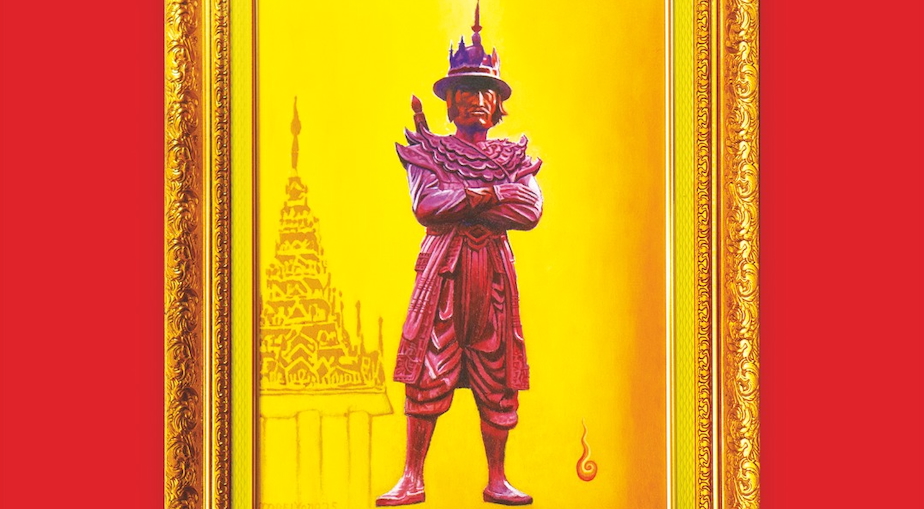ANGELA ROMANO explores the 'envelope culture' among journalists
In the past 30 years the culture of giving journalists money has become so well entrenched in Indonesia that some journalists admit to more than doubling their income by accepting envelopes containing money from sources.
Former editor Atmakusumah Astraatmaja remembers that in the 1950s an identifiable envelope culture had not yet become well entrenched. But political and military factions financially supported the fledgling and insecure newspaper industry. Without such aid many newspapers would have been unable to pay journalists' salaries.
Older journalists remember that the number of envelopes given to journalists skyrocketed in the early 1970s. These days most sources offer envelopes because such behaviour has become habit. They assume journalists expect the money. Journalists joke: 'I never take envelopes. In fact, I always throw the envelope away. It's only the money that I keep.'
Certain desks, such as economy, are conspicuously 'wet' while others, such as foreign affairs, are considered 'dry'. A journalist based in a dry news beat such as police headquarters, may find that the envelopes, infrequently proffered, do not exceed the cost of a return taxi transport between an event and the reporter's news organisation.
On wet desks, envelopes are sometimes equivalent to several months salary. They are so ubiquitous that one reporter with a strong anti-envelope stance requested to be moved out because he was embarrassed at the number of envelopes extended. He found the stress 'wearying to the point of exhaustion'.
Headaches
The availability of envelopes has spawned a semi-criminal subculture of bodrek journalists. Bodrek are often not real journalists at all. They pose as reporters to harass sources for money. They are named after the patentedbodrek headache tablet because sources are often forced to hand over their money to avoid headaches from these bogus reporters!
Some bodrek are former journalists who have lost their jobs for various reasons but still circulate at press events. The government-sanctioned Indonesian Journalists Association (PWI) admits some may even carry an official PWI press identity card which they obtained while still legitimately employed as journalists.
Sometimes bodrek are agents or stringers for a very small newspaper which pays them next to nothing for their occasional stories, but which ensures them a press card. Such reporters can earn most of their income from envelopes. They are considered to become bodrek rather than true journalists once they use their journalistic position purely as a stratagem to siphon envelopes out of wet sources.
There are also journalists who dig for negative information about vulnerable sources and then blackmail them. Otherbodrek are not journalists but, realising the easy money to be made, masquerade as reporters in order to collect envelopes for news that they never intend to write about. Some of these pseudo-journalists obtain the business cards of real journalists and attempt to enter press conferences by falsely assuming their identity.
'Real' journalists sometimes joke that bodrek aremuntaber (short for muntah-berak, vomiting and diarrhea) because they muncul tanpa berita (emerge without news). They also refer to bodrek by using the colloquial term for prostitutes, WTS (short for wanita tuna susila, woman without morals), because the bodrek is a wartawan tanpa suratkabar (journalist without a newspaper).
The derogatory terms used to describe bodrek reflect the fine line journalists draw between acceptable and unacceptable conduct regarding envelopes. In journalistic mythology, envelopes are offered by grateful or benevolent sources, and journalists passively accept such gifts from politeness rather than personal interest, so that the handover of money is subordinate if not completely irrelevant to the main business of objective news gathering. The prime purpose ofbodrek, however, is unequivocally envelopes and not news.
Some news organisations ban their journalists from accepting envelopes, although the prohibition is not always successful. One reporter described feeling humiliated each time he attends press conferences. The PR people will not give envelopes to reporters from Kompas or the Jakarta Post, because 'they understand that journalists from those newspapers usually decline'. But they will offer him an envelope because they know that journalists from his newspaper are 'more permissive', despite the newspaper's no-envelope policy.
Practical
Most news organisations do not outlaw envelopes, usually on the grounds that they are too financially insecure to pay their journalists adequate salaries and that the envelopes are necessary for journalists' welfare. The Indonesian Journalists Association (PWI) has also taken a practical approach to envelopes. Even though the PWI Code of Ethics explicitly forbids gifts of all kinds, PWI leaders have often publicly stated that journalists may receive envelopes as long as they do not influence news.
Atmakusumah, now head of the Dr Soetomo Press Institute, says that journalists are 'very defensive' when told they must stop receiving envelopes. They know that their editors regularly accept gifts, invitations to lavish functions and all-expenses- paid luxury travel. Journalists feel they are entitled to an 'envelope' as long as their workplace role models continue to accept 'sacks' (of money).
Angela Romano is completing a PhD in journalism at Queensland University of Technology, Brisbane, Australia.











